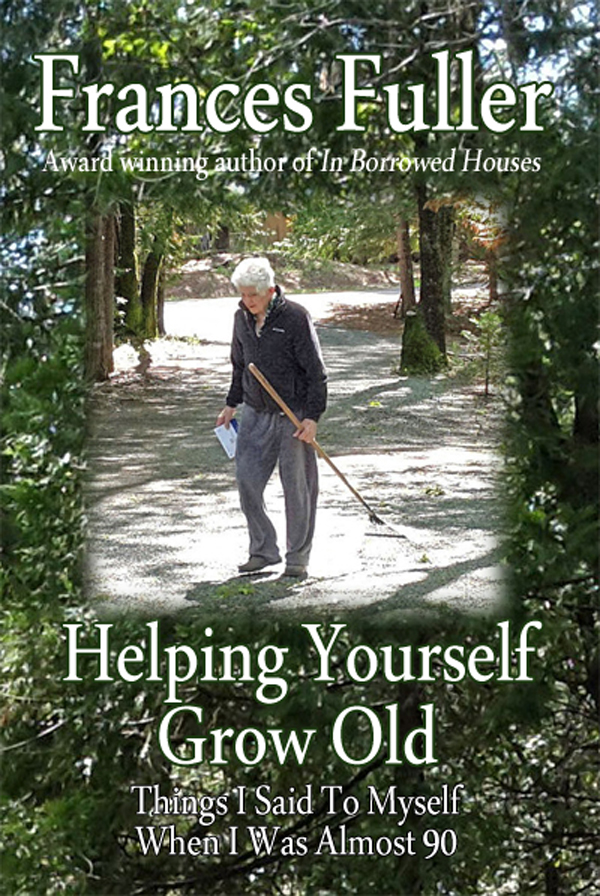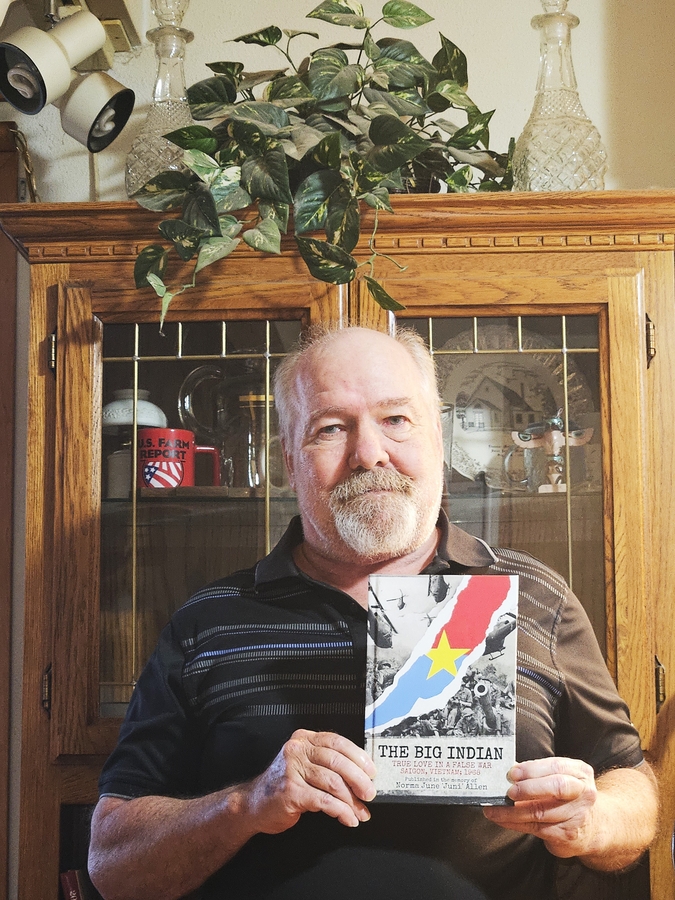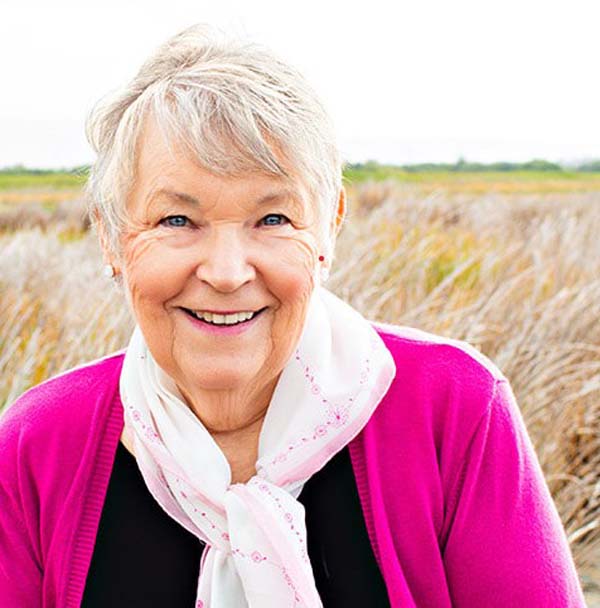Best-selling author Frances Fuller offers an insider’s view of assisted living and a unique outlook on aging, based on her own experience. Her insights are penetrating and deal with issues that many seniors and their families are concerned about.
WILMINGTON, NC, July 23, 2025 /24-7PressRelease/ — In the space of just two weeks we have witnessed two major events – the flood in Texas and the fire in an assisted living facility in Massachusetts. This brings us to a very important question for seniors living in or considering moving to an assisted living facility: Will I be safe?
Frances Fuller, author of the bestselling book on aging, ‘Helping Yourself Grow Old’, addressed this subject in a blog post on her site at https://FrancesFullerAuthor.com. In that post she wrote in part:
Last weeks’ devastating flood in Texas reminded me of something important that I realized we need to talk about here. And then before I could do anything about it. there was the Monday a.m. news that nine people had been killed by fire in an assisted living facility in Massachusetts.
These events force us to think about a reality of old age: our ability to respond to danger is limited. This fact is relevant when we are choosing a place to live.
In a California fire a few years ago a town called Paradise was destroyed and 85 people died. A high percentage of these unfortunate people were elderly.
Books have been written about this tragedy; I have not read the books. I already lived the event, following the news as it unfolded, because at the time, I lived not far from Paradise, in a similar high fire hazard area. I had an emergency bag in the trunk of my car: simple necessities in case of separation from home. My son put the bag there for me, and it had to stay there all year, because when it was packed I was not able to lift it into the trunk.
Following the instructions of my own fire department, I had posted in my little office a list of treasures I would want to grab if leaving in a hurry. These were things of special value to me—practical or emotional. Some of them were my medicines and legal documents, some the original art hanging on my walls. The list gave me comfort that I would not forget something I considered essential.
Gas in the car was also crucial. If a population is fleeing, with cars bumper to bumper on the only road out of the area, the driver who runs out of fuel will create a tragedy for herself and everyone behind her. Consequently, I somewhat obsessively stopped at stations when I needed only two or three gallons to fill my tank.
The Paradise fire started in the early morning. Lots of people were still in bed; their hearing aids were probably on their bedside tables, like mine. By the time old people knew they were in danger, it was too late to escape. The Massachusetts fire happened in the middle of the night.
In any home for the elderly, residents should remember such stories and insist on knowing the plan for protecting them in case of an emergency in their city or in their building. In a particular facility that I happen to know about, the residents recently demanded to know what would happen in case of a fire in their building. The question was certainly reasonable. Every time they got into the elevator they saw a little sign telling them not to use it in case of a fire in the building. But most of them were incapable of using the stairs.
Responsible staff personnel responded to the question. They said they had equipment and an evacuation plan. They would take full responsibility for residents, who should just stay in their rooms. Residents demanded to see the equipment and know the plan.
Truthfully, staying where we are may be the most difficult instruction to follow, because it is counterintuitive.
I notice that for mature adults, as for children, safety has two dimensions: the physical reality that we are safe and the mental confidence that this is true.
In the homes for the elderly that I know about, there are signals in every apartment: a button hanging around a resident’s neck, a cord by the shower or the bed, a smoke alarm in the kitchen. And along with these devices, there should be confidence that if I push the button or pull the cord, help will arrive.
I think it was the flood in Texas that made me think about this. What if we had a hundred elderly people in a building, half of them with walkers or electric wheelchairs, and we got news of a wall of water coming fast?
The full post is available at https://www.inborrowedhouseslebanon.com/will-i-be-safe/.
In ‘Helping Yourself Grow Old, Things I Said To Myself When I Was Almost Ninety’, Frances provides readers with a closeup view of what it means to age well.
Unable to find a guidebook for aging, Fuller decided that she must figure out for herself how to live wisely through the puzzles and possibilities of aging, and while she learned she wrote. The result is thirty-eight personal essays, most of them resolves, promises she is making to herself and her family. In them she deals with such issues as grief, loneliness, physical limitations, fears, duties, and with the significance of her own life story. Guided always by her Christian faith, she tries to make sense of her own past and to understand her responsibility to younger generations. In the process she shares her daily life, enriched with memories from her fascinating experiences. Her stories and her voice—fresh, honest, irresistible—keep the reader eager for more. Her questions are universal. Her answers create a map through the challenging terrain of old age.
Frances Fuller’s book is unique among the many books on aging, because it is personal, while most such books are written from an academic point of view. Most are penned by sociologists, doctors, gerontologists, even the CEO of AARP, and one by a Catholic nun, Joan Chittister. Chittister’s book, ‘The Gift of Years’ is beautifully written, focusing on spiritual values and finding meaning in life. Chittister admits in the preface that she was only 70, which is the front edge of aging, and her book is somewhat abstract.
Atul Gawande’s book, ‘On Being Mortal’, relates medicine and old age, It enjoys high Amazon rankings, in the category of “the sociology of aging.” It contains a great deal of valuable scientific information and shows understanding of the physical and emotional needs of the elderly.
Frances Fuller’s book, ‘Helping Yourself Grow Old, Things I Said To Myself When I Was Almost Ninety’, is an up-close and very personal encounter with aging. It is an uncontrived and firsthand look at her own daily experiences: wrestling with physical limitations, grief, loneliness, fears, and the decisions she has made about how to cope with these and keep becoming a better person. She faces regrets and the need to forgive herself and others and is determined to live in a way that blesses her children and grandchildren.
Frances deals with many common, universal but sometimes private issues in an open, conversational tone. Her confessions and decisions invite self-searching and discussion. She tries to make sense of her own past and to understand her responsibility to younger generations. In the process she shares her daily life, enriched with memories from her fascinating experiences. Her stories and her voice — fresh, honest, irresistible — keep the reader eager for more. The end result is a book that helps create a detailed map through the challenging terrain of old age.
The result of this intimate narrative is that readers laugh, cry and identify with her mistakes and problems. Reviewers have called the book, “unique,” “honest,” “witty,” “poignant,” “challenging” and “life-changing.”
For these reasons it is a book unlike any other book on aging you will ever read. The book can serve as a primer on what lies in store for all of us, from someone who is working through many of these issues. While the book is a perfect fit for book clubs, there are many other individuals and groups who could benefit from the information and ideas in the book:
Those approaching retirement
People who are currently retired
Children of aging parents
Those who have lost a spouse
Retirement community discussion groups
Counselors
Educators
Life coaches
Church groups (men and women)
and a host of others. For group discussions, Fuller has made a set of discussion questions available at her website at http://www.FrancesFullerAuthor.com.
Readers have lavished praise on the new book. One Amazon review stated, “I find myself thinking,’I need to read this again and take notes!’ It’s full of wisdom, humor, and grace. I also have committed to rereading it annually – it’s that important!” Another said, “There is valuable life experience in this book. Helping Yourself Grow Old is truly is a book for all ages, and one not to be missed.” Another stated, “Beautifully written book telling timeless truths, for both the old and the young. Highly recommend this book for anyone who loves to laugh, cry, and learn wisdom from someone who has lived so much life.”
Frances’ prior work, ‘In Borrowed Houses’, has taken three industry awards and has achieved Bestseller status. Frances Fuller was the Grand Prize winner in the 2015 ’50 Great Writers You Should Be Reading’ Book Awards. It received the bronze medal for memoir in the Illumination Book Awards in 2014. Northern California Publishers and Authors annually gives awards for literature produced by residents of the area. In 2015 ‘In Borrowed Houses’ received two prizes: Best Non-fiction and Best Cover.
Critics have also praised ‘In Borrowed Houses.’ A judge in the 22nd Annual Writer’s Digest Self-Published Book Awards called ‘In Borrowed Houses’ ” . . a well written book full of compassion . . . a captivating story . . . “. Another reviewer described the book as “Wise, honest, sensitive, funny, heart-wrenching . . .”. Colin Chapman, lecturer in Islamic Studies at the Near East School of Theology in Beirut said, ” . . . western Christians and Middle Eastern Christians need to read this story…full of remarkable perceptiveness and genuine hope.”
Frances has shared stories about her life in an interview with Women Over 70, and a recording is available on their Facebook page.
Frances Fuller is available for media interviews and can be reached using the information below or by email at frances0516@att.net. The full text of her latest article is available at her website. Fuller’s book is available at Amazon and other book retailers. A free ebook sample from ‘In Borrowed Houses’ is available at http://www.payhip.com/francesfuller. Frances Fuller also blogs on other issues relating to the Middle East on her website at http://www.inborrowedhouseslebanon.com.
About Frances Fuller:
Frances Fuller spent thirty years in the violent Middle East and for twenty-four of those years was the director of a Christian publishing program with offices in Lebanon. While leading the development of spiritual books in the Arabic language, she survived long years of civil war and invasions.
—
For the original version of this press release, please visit 24-7PressRelease.com here





